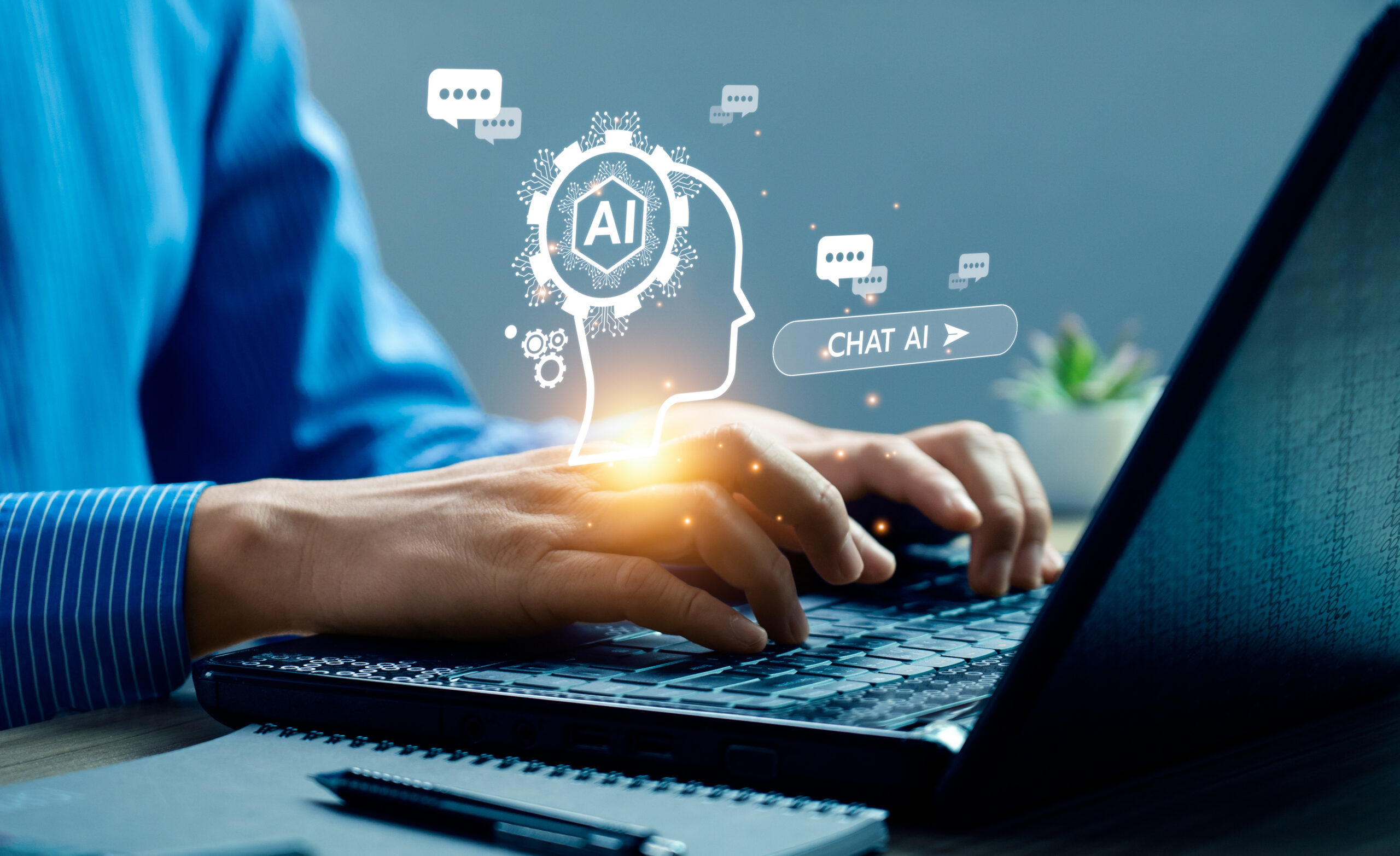We’re living in an age of miracles and wonders, or so we’re told: self-driving cars to whisk you about like a Rajah, face-recognition software to track your every movement for “your own safety,” and predictive algorithms to determine whether you’re worthy of a roof over your head, a job in the morning, or indeed, bail at all. Ah, the new utopia—where flinty-eyed code crunchers decide your fate with a smile, a wave, and a line of Python and the like. Or maybe you’d prefer the old-fashioned version of liberty, where citizens actually get to know the rules before they’re condemned by them.
We’re not talking here about who gets to see your latest cat video. No, these shiny Artificial Intelligence contraptions are increasingly running the show on your most fundamental rights—those well-established classics like life, liberty, and property. Remember them? They’re the ones Western civilization spent a few centuries protecting. Now, as governments and big tech outfits toss these cherished liberties into a giant machine-learning blender, they have the gall to say: “Trust us. It’s complicated.” Well, color me unimpressed.
We stand at a crossroads. On one side: open scrutiny, public oversight, and accountability in how these black-box algorithms decide who lives free and who lives behind bars, who enjoys a dignified existence and who’s ejected from the economy. On the other: the so-called “trade secrets,” “intellectual property,” and “overwhelming complexity” that Big Algorithm’s proprietors claim entitle them to hide their methods. Which side do you think a decent, free society should choose?
Your Rights vs. Their ‘Secret Sauce’
When an algorithm can snatch your freedom or ration your opportunities, the very notion that its workings must remain secret is repellent. “But we need to protect our competitive advantage!” shrieks the codemaker. Oh, do you now? Well, when your “competitive advantage” means deciding whether Joe Schmoe gets a mortgage or a prison cell based on a glitchy data set, you can kindly stuff your trade secrets where the sun doesn’t shine. Let’s be blunt: in a fair and just society, your corporate intellectual property doesn’t outrank a fellow citizen’s basic rights. If you think otherwise, perhaps you took a wrong turn at Silicon Valley and ended up in North Korea.
The idea that intellectual property upstages fundamental freedoms is a grotesque inversion of priorities. If a secret formula can wreck a human life by denying due process or fair consideration, that formula must be dragged into the sunlight and dissected like a diseased lab specimen. Anyone squealing about “proprietary algorithms” when the police are crunching their code to decide who to round up next should be laughed out of the room. We’re not talking about the Colonel’s secret recipe of eleven herbs and spices—we’re talking about tools that can imprison you, impoverish you, or doom you to second-class citizenship. Enough with the hush-hush routine.
The Complexity Con and the Black-Box Boondoggle
Oh, but they say the models are too complex to explain! “Our AI is so advanced,” they boast, “even we don’t fully understand how it works.” That’s not exactly reassuring, is it? Since when did “Trust us, we’re clueless too” count as a comforting guarantee? If these algorithmic overlords can’t clarify how their high-tech voodoo sorts the righteous from the damned, then it’s well past time to bar them from making such calls. Complexity is not a virtue when it’s deployed to undermine justice—it’s a cardinal sin.
If a model is too complicated to explain, then it’s too dangerous to use in any scenario where people’s rights are on the line. Period. Take your deep learning mumbo jumbo and deploy it elsewhere—somewhere it can do no harm. Maybe it can recommend cat memes or optimize lawn sprinkler settings. But if you think it should decide whether to incarcerate a human being, deny them employment, or restrict their access to vital services, you’re out of your mind. When it comes to life, liberty, and property, only a full accounting will do. The rest is tyranny dressed up in fancy jargon.
Learn from the Encryption Folks
If you still think that public scrutiny is some radical idea, look at how encryption works. Yes, encryption algorithms—the ones that protect your bank details or your private messages—are public and subject to continual, merciless inspection by anyone worldwide. Their strength derives from transparency. If someone comes up with a malicious trick to break the code, the global community of cryptographers and anyone else takes corrective action. The result is robust, reliable security that doesn’t rely on secrecy.
If we’re willing to hold encryption—our digital lifeboat of confidentiality—to that standard of openness, why in the name of all that’s holy would we not demand the same level of scrutiny for algorithms that can steal your freedom, crush your livelihood, or place you under permanent suspicion? It’s not radical; it’s the bare minimum. If tomorrow’s judges are going to be replaced by circuits and weights and biases, at least let us know how these mechanical magistrates render their verdicts.
Hidden Bias and the Busy Little Bigots in Your Code
For all the moral preening about how AI will save us from human prejudice, these systems are utterly dependent on their training data—data that can carry old-school biases like a parasite. If you feed your algorithm a steady diet of skewed historical records, you’ll get skewed results—and that means entire communities condemned to the digital gallows by a system nobody can question because, heaven forbid, that might jeopardize the developer’s brand name.
This is not some harmless oversight. This is systemic injustice on a microchip. By refusing to open the hood and show us how their algorithms run, these tech wizards effectively say, “You must trust in our corporate virtue”—a phrase that, given the track records of various mega-corporations and bureaucracies, should set alarm bells ringing from here to Alpha Centauri. If there’s bias lurking in the machine, we have a moral duty to drag it out into the light, not to let it fester under the cover of intellectual property claims.
Oversight Isn’t an Afterthought
Some governments, always eager to cozy up to Big Tech, propose letting a handful of “trusted experts” peek at these algorithms behind closed doors. That’s like letting the fox guard the henhouse and congratulating yourself on your prudence. A single secretive review board isn’t good enough. We need the disinfectant of public scrutiny. The best way to catch sneaky biases and errors is to unleash a multitude of eyes—independent researchers, academics, non-profits, citizen journalists, and anyone else looking to keep our liberties intact. A fine idea, no?
Genuine accountability means that no one should have to say, “Pretty please, Mr. Billionaire CEO, may I see what’s under your algorithmic hood?” We should have the right to pry it open with a crowbar and examine every last line of code, every data source, and every parameter setting. If that offends the delicate sensibilities of a Silicon Valley wunderkind or a DC agency, so be it. Natural rights trump fragile egos.
The Letter and Spirit of the Law: Zero Tolerance
Let’s enshrine this principle in law. Not some squishy, toothless guidelines, but real, enforceable mandates. If an AI system is used anywhere that can affect fundamental rights—criminal sentencing, policing, healthcare allocation, lending, housing—then it must be made public. No ifs, no buts. If the anyone balks, tough luck. The moment you decide to play God with other people’s lives, you lose the right to claim privacy for your sacred code.
If a company or bureaucracy won’t comply, ban the bloody thing. Confiscate its permission to operate. Fine it into next Tuesday. Sue the pants off it until it squeals. That’s how you handle people who presume to govern human beings via secret algorithms. You don’t negotiate your own enslavement; you assert your rights. After all, last time I checked, the foundational documents of free societies didn’t say, “Your right to liberty shall not be infringed—unless a Silicon Valley startup stands to lose a few bucks.”
Involving the Public: End the Tech Priesthood
Even if we win transparency on paper, what good is it if no one but a handful of PhDs can understand the techno-gibberish? We must push for readable, comprehensible explanations and foster a culture in which ordinary citizens can grasp how these systems are judging them. Put it in plain English, for heaven’s sake. If the company or government can’t do that, it’s not welcome at the grown-ups’ table.
We must turn AI oversight into a democratic exercise. Town halls, public forums, investigative journalism—these aren’t distractions, they’re necessities. If we don’t want to wake up one fine morning living under the algorithmic boot, we’d better start learning how these contraptions make decisions and making sure that knowledge is accessible to all. A citizenry kept in the dark is a citizenry in chains.
Rejecting Unacceptable Systems
Ultimately, we must have the courage to say no. If a system’s complexity defies explanation, if its owners refuse to open their kimono and show us what’s really going on, if it’s all too hush-hush and proprietary for us mere mortals to understand—then consign it to the digital dustbin. We cannot allow life-altering judgment calls by machines that we cannot question, challenge, or overrule. That way lies tyranny.
Let the vendors howl about “loss of innovation.” Innovation at the cost of justice and liberty isn’t progress; it’s decadence. If we must choose between a less “advanced” method that respects human rights and a gleaming, cutting-edge monstrosity that tramples them, we choose the former without hesitation. Societies that value liberty don’t outsource moral and legal responsibilities to hidden computer code.
A Future Without Algorithmic Star Chambers
Imagine a world where, if you’re arrested, you don’t have to rely on blind faith that the AI scoring your risk profile is on the level. Instead, your lawyer can scrutinize every step of that machine’s reasoning, challenge flawed assumptions, and demand corrections. Imagine applying for a loan and being able to see precisely why you were turned down, and to argue your case if the algorithm got it wrong. Imagine doctors and patients working together with open-source diagnostic tools they can actually understand and verify. It’s not a pipe dream. It’s what any halfway decent civilization should expect as standard.
That’s the future we should demand: one where human beings remain at the center, not as helpless pawns of some opaque AI overlord. The free and open examination of these tools isn’t the enemy of progress—it’s the guarantor of it. Without accountability, “progress” becomes just another word for someone else’s profit at your expense.
Time to Lay Down the Law
It’s long past time to tell these tech titans and bureaucratic mandarins: if your AI meddles with fundamental rights, then everything about it must be out in the open, no exceptions. If you can’t handle that, go find a market niche that doesn’t involve trampling on essential human liberties. Because we’re done playing nice. We’ve seen where secret algorithms can lead—opaque credit decisions, mystery sentencing, social credit scoring. No thanks.
The cry “It’s too complex” is about as persuasive as “I don’t feel like explaining myself.” Complexity is just a fancy word for “trust me”—and if the last decade has taught us anything, it’s that we shouldn’t trust these self-appointed wizards of the digital age any further than we can throw their server farms.
Stand firm and insist on transparency. There’s nothing extreme or radical about it. In fact, it’s the only sane response if we don’t want to gift-wrap our society and hand it over to nameless, faceless code. Natural Rights must prevail over AI secrecy and algorithmic arrogance. For the sake of our future as free human beings, let’s rip open that black box and keep it open. No more excuses. Zero. No exceptions.


